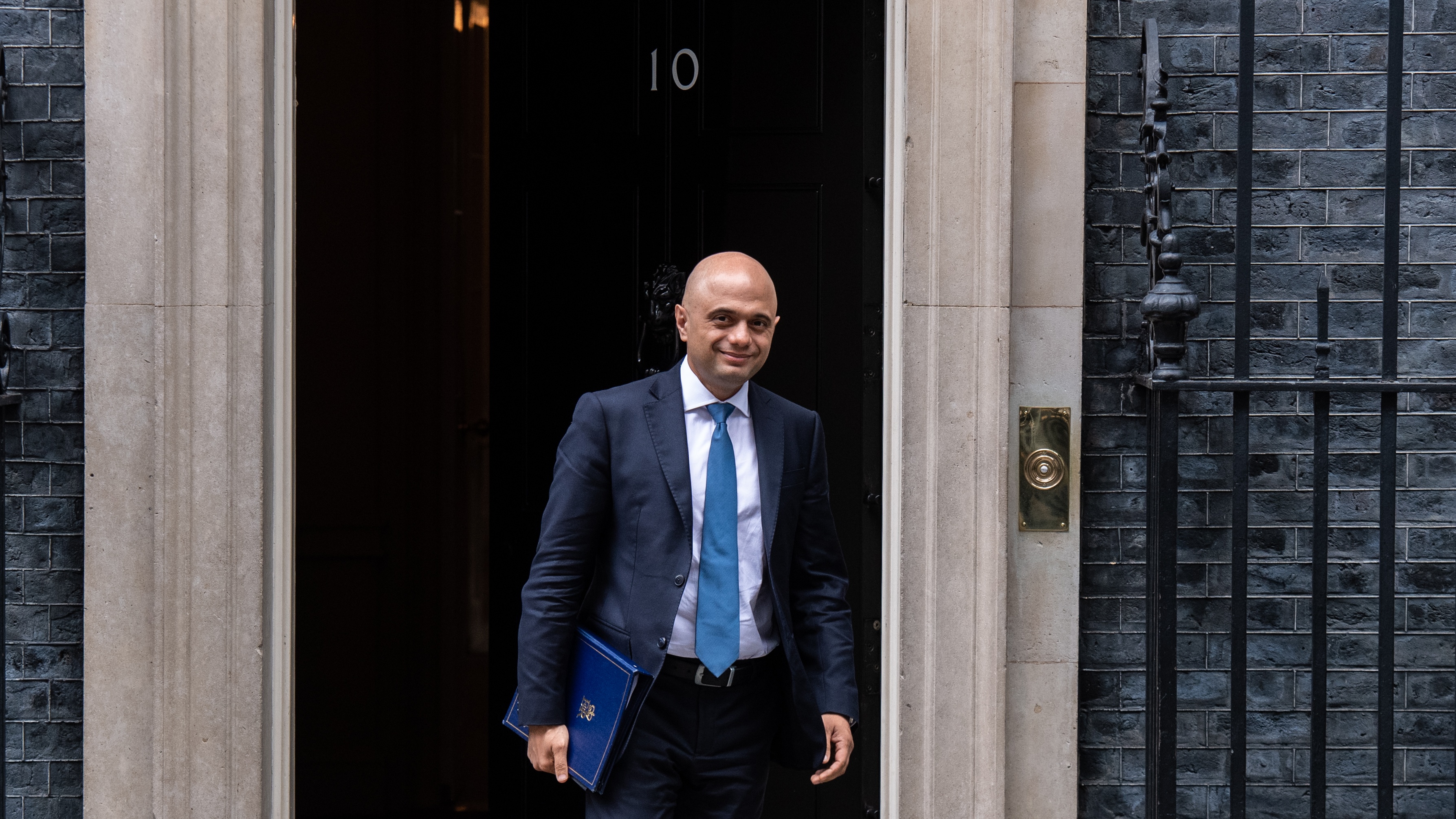Should the UK act to stop ‘revolving door’ between politics and big business?
Facebook targeting government insiders as another ex-minister joins banking giant J.P. Morgan

A free daily email with the biggest news stories of the day – and the best features from TheWeek.com
You are now subscribed
Your newsletter sign-up was successful
Facebook has hired ten former UK government policy officials with insider knowledge of regulatory processes since the beginning of 2020, an investigation has found.
The Times reports that the social media giant is “systematically hiring government insiders” in a recruitment campaign that will fuel concerns over the “close relationship between the government and technology companies”.
The new claims about the so-called “revolving door” between politics and the private sector come just a week after J.P. Morgan announced that former chancellor Sajid Javid has been appointed as a senior advisor to the banking giant.
The Week
Escape your echo chamber. Get the facts behind the news, plus analysis from multiple perspectives.

Sign up for The Week's Free Newsletters
From our morning news briefing to a weekly Good News Newsletter, get the best of The Week delivered directly to your inbox.
From our morning news briefing to a weekly Good News Newsletter, get the best of The Week delivered directly to your inbox.
Why the concerns?
The officials hired by Facebook “left roles in government and with regulators” to work on policy and communications for the social media giant, “indicating that mandarins are being offered significant incentives to do so”, says The Times.
Facebook’s possible motives are key to critics’ concerns, with some senior Conservative MPs claiming that “Facebook was seeking to limit regulations before they were introduced”, the newspaper reports.
Julian Knight, the Tory chair of the Commons Committee on Digital, Culture, Media and Sport, argues that the public “have a right to question the cosy relationship between government and big tech at all levels”.
A free daily email with the biggest news stories of the day – and the best features from TheWeek.com
“The truth is big tech has taken over from the likes of banking, oil and pharmaceuticals in terms of their lobbying power,” he added.
The committee’s former chair, Tory MP Damian Collins, claims that Facebook is “clearly hiring people who have both direct personal knowledge” of the latest thinking in government and “extensive networks” among officials advising ministers.
“They are doing this to try and change the direction of policy before it is even launched,” Collins said.
Similar concerns were raised after Javid’s new banking role was announced last week. The former chancellor will continue his work as an MP while joining a panel of outside experts on J.P. Morgan’s Europe, Middle East and Africa advisory council.
The bank has refused to reveal his salary, which “is not expected to be on the same scale as [Tony] Blair, who was reportedly paid more than £2m a year” as a “global advisor” to the New York City-based multinational, according to The Guardian.
What are the current rules?
For former ministers and senior civil servants, the rules on work outside the political arena are fairly simple. All second jobs, or roles taken immediately after stepping down from government, must be cleared by the Advisory Committee on Business Appointments at the Cabinet Office.
This body decides whether it is appropriate for senior government figures to take up roles after leaving politics, or in the case of sitting MPs such as Javid, whether they must be “ring fenced” against revealing government policy and privileged information.
All ex-ministers must inform the committee of any employment they wish to take up within two years of standing down from their government role.
For example, when former Tory MP David Gauke rejoined law firm Macfarlanes as head of policy in May, he would have had to clear the role since he served as justice secretary under Theresa May until last summer.
However, when it comes to the type of officials Facebook is targeting, the rules get a bit more complicated. As The Times notes, the job moves “are not published in official transparency releases, either because the officials were not senior enough or because they worked for independent regulators such as Ofcom”.
“The Advisory Committee on Business Appointments, which vets appointments of former crown servants, only checks at director-general level and above,” the paper continues. “And its advice is non-binding.”
So should the regulations be beefed up?
Steve Goodrich, a senior researcher at anti-corruption organisation Transparency International UK, told The Times that “in theory, there are restrictions on former civil servants using privileged information to benefit their new employers”.
But “how much this is enforced in practice is up for debate”, he adds.
The latest influx of officials moving into the private sector is part of an ongoing trend, with official figures published in 2017 revealing that 52 former ministers had taken up jobs outside of Parliament in the previous 12 months. The politicians who crossed over included Frances Maude, an ex-Cabinet Office minister and industry minister, who took up nine external roles.
The disclosure fuelled “complaints that lawmakers are routinely making use of a ‘revolving door’ to pursue lucrative contracts in the private sector”, as The Guardian’s Whitehall editor Rajeev Syal wrote at the time.
The following year, the Committee on Standards in Public Life said that “MPs should be more transparent with voters if they have second jobs outside Westminster”, the BBC reported.
Labour also called for a “radical overhaul” of the “revolving door”, which the party claimed was “at the heart of how the British establishment survives and thrives across Whitehall”, according to The Independent.
But Labour made no specific recomendations and no reforms have been enacted since then.
Joe Evans is the world news editor at TheWeek.co.uk. He joined the team in 2019 and held roles including deputy news editor and acting news editor before moving into his current position in early 2021. He is a regular panellist on The Week Unwrapped podcast, discussing politics and foreign affairs.
Before joining The Week, he worked as a freelance journalist covering the UK and Ireland for German newspapers and magazines. A series of features on Brexit and the Irish border got him nominated for the Hostwriter Prize in 2019. Prior to settling down in London, he lived and worked in Cambodia, where he ran communications for a non-governmental organisation and worked as a journalist covering Southeast Asia. He has a master’s degree in journalism from City, University of London, and before that studied English Literature at the University of Manchester.
-
 Why the Gorton and Denton by-election is a ‘Frankenstein’s monster’
Why the Gorton and Denton by-election is a ‘Frankenstein’s monster’Talking Point Reform and the Greens have the Labour seat in their sights, but the constituency’s complex demographics make messaging tricky
-
 Minnesota's legal system buckles under Trump's ICE surge
Minnesota's legal system buckles under Trump's ICE surgeIN THE SPOTLIGHT Mass arrests and chaotic administration have pushed Twin Cities courts to the brink as lawyers and judges alike struggle to keep pace with ICE’s activity
-
 Big-time money squabbles: the conflict over California’s proposed billionaire tax
Big-time money squabbles: the conflict over California’s proposed billionaire taxTalking Points Californians worth more than $1.1 billion would pay a one-time 5% tax
-
 Trump sues JPMorgan for $5B over ‘debanking’
Trump sues JPMorgan for $5B over ‘debanking’Speed Read Trump accused the company of closing his accounts for political reasons
-
 The high street: Britain’s next political battleground?
The high street: Britain’s next political battleground?In the Spotlight Mass closure of shops and influx of organised crime are fuelling voter anger, and offer an opening for Reform UK
-
 Will Netanyahu get a pardon?
Will Netanyahu get a pardon?Today's Big Question Opponents say yes, if he steps down
-
 Is a Reform-Tory pact becoming more likely?
Is a Reform-Tory pact becoming more likely?Today’s Big Question Nigel Farage’s party is ahead in the polls but still falls well short of a Commons majority, while Conservatives are still losing MPs to Reform
-
 Can Gen Z uprisings succeed where other protest movements failed?
Can Gen Z uprisings succeed where other protest movements failed?Today's Big Question Apolitical and leaderless, youth-led protests have real power but are vulnerable to the strongman opportunist
-
 Taking the low road: why the SNP is still standing strong
Taking the low road: why the SNP is still standing strongTalking Point Party is on track for a fifth consecutive victory in May’s Holyrood election, despite controversies and plummeting support
-
 Is Trump’s Justice Department giving up on corruption?
Is Trump’s Justice Department giving up on corruption?Today's Big Question Justice Department cuts back while going after president's enemies
-
 ‘Peak consumption has become the Holy Grail of the energy debate’
‘Peak consumption has become the Holy Grail of the energy debate’Instant Opinion Opinion, comment and editorials of the day